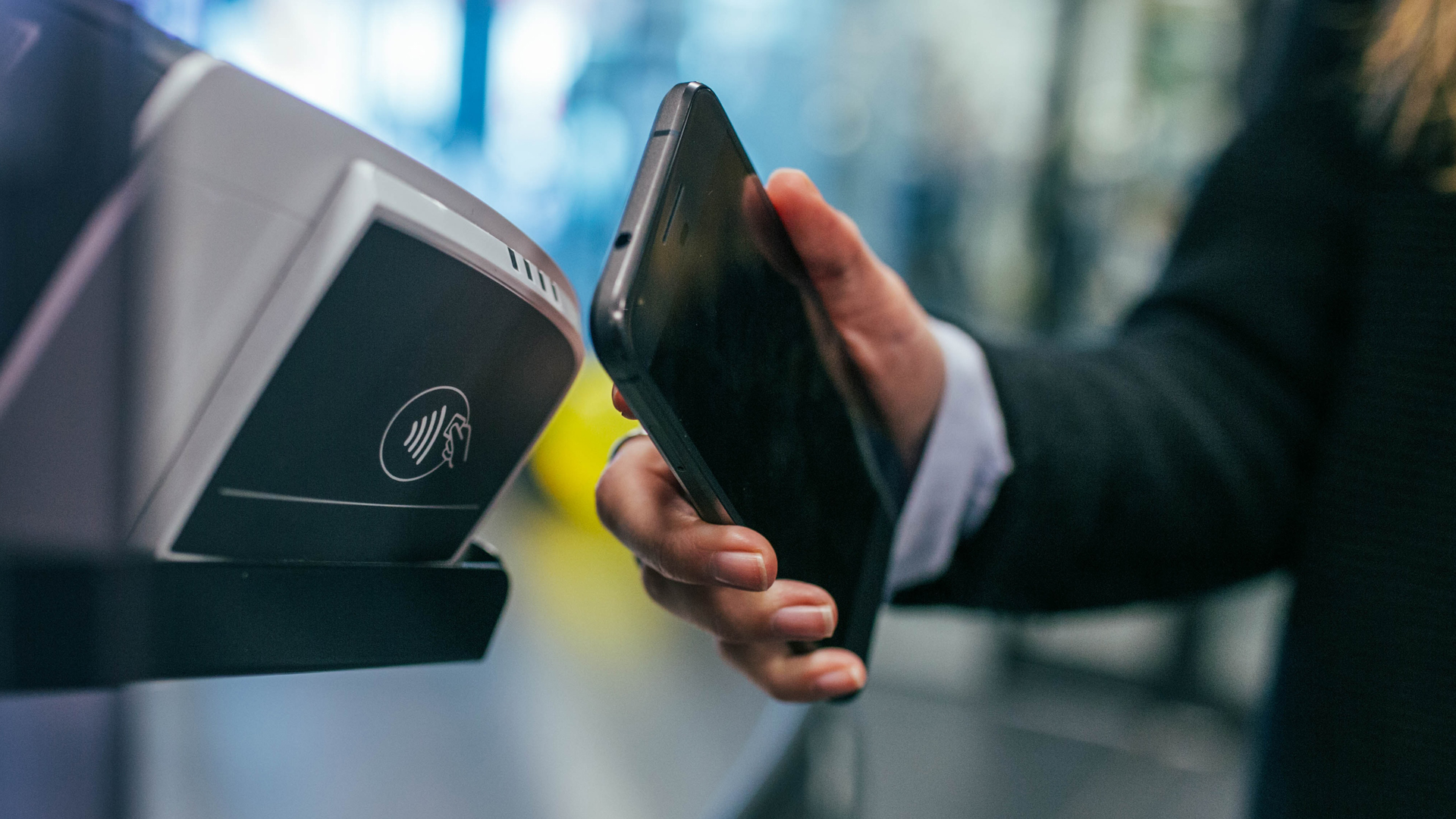The shopping journeys of customers vary from one shopper to another. Some people walk through your doors because they saw a great product on display. Others may find you while doing online research. Maybe you have customers referred to you by their friends.
Regardless of how they find you, anyone who decides to buy from your store ends up in the same place: the point of sale (POS). This is the point where the purchase is completed and you hand over the products to the customer.
Needless to say, the point of sale is a critical step to any shopping journey, which is why it’s important to give shoppers a great experience.
Doing that starts with having the right POS system.
And that is exactly what we’ll discuss in this post. In this guide, we’ll walk you through the factors you should consider when shopping for a solution and how you can select the best POS system for your biz.
Let’s dive in.
What is a POS system?
A POS system refers to the components that facilitate the point of sale process. It consists of the hardware and software you use to ring up sales.
At its most basic level, a POS system functions as a cash register that lets you record sales, take payments and issue receipts. But point of sale systems have evolved over the years, and today many modern POS solutions come with inventory management, analytics, and CRM capabilities.
- The best POS systems of 2020
Key benefits of POS system
Investing in the right point of sale system can benefit you, your team, and your customers in the following ways:
This is THE system that holds the point of sale process together. Without a POS solution, there would be no checkout and you won’t be able to record transactions. Needless to say, it’s a system that’s absolutely essential to ringing up sales, and your business won’t function well without one.
A POS system (a good one, anyway) may also have reporting capabilities that can surface useful insights about your products, sales, customers, and more. With the right solution, you can gain actionable insights and make smarter business decisions.
This benefit applies to modern retail POS software and restaurant POS systems that have extended capabilities like stock control, customer management, marketing, etc. Adopting a robust point of sale solution gives you access to powerful tools you can use to grow your business. For instance, if your POS software comes with a built-in loyalty program, that feature can be used to drive repeat business.

Types of businesses that use POS systems
Any business with a physical checkout process needs a POS system. Such merchants include:
Retail stores. Shops that sell physical goods (e.g., boutiques, supermarkets, convenience stores, etc.) need retail POS software and hardware.
Restaurants. Sit-down restaurants, as well as quick-service restaurants like fast food chains, use restaurant POS systems.
Entertainment and hospitality. Establishments where people pay for experiences use POS systems. Examples of businesses in this realm include hotels, cinemas, museums, theme parks, etc.
Service providers. Salons, spas, and other service-based businesses also use POS systems.
On-the-go merchants. Retailers and service providers that operate on-the-go (e.g., merchants at events or service providers that do house calls) also need a POS solution to ring up sales.
What to consider when looking for the best POS system for your business
Now that we’ve covered the basics of point of sale systems and who they’re for, let’s look at some of the top considerations you should keep in mind when selecting a solution for your business.
Iron out the needs of your business
It’s tempting to immediately jump into research mode and find POS companies to check out, but before you do that, it’s best to do some internal research and figure out your requirements. Doing so will give you clarity on what you need (and what you don’t), which will make your search much easier.
Here are some areas to look at when determining your requirements:
Existing system shortcomings
If you already have a POS system that you’re looking to replace, start by identifying its shortcomings. What features are missing from the solution? What are some tasks that you wish it would let you do? What are your pain points?
Take note of the answers to these questions and use them when you’re researching solutions in the market. For example, if one of your system’s shortcomings is the inability to take gift cards, then that’s something you could keep in mind when comparing solutions later on.
It also helps to discuss your POS system with your team. Ask the above questions to your cashiers and associates and document their input.
Hardware
Point of sale equipment can be a big investment, so if you have an existing setup, and you’re happy with your hardware, then set your sights on solutions that work with what you have.
Let’s say you’re using iPads for your POS. In this case, you’d want to look for solutions that function well on an iPad.
Also, take note of devices like barcodes scanners, credit card terminals, drawers, and printers, and make sure that the POS system you choose works with those devices.
Software or apps that you’re using
The same goes for the software or apps that you’re using. If you’re happy with your accounting software, CRM, ecommerce platforms, etc., see to it that the point of sale solution integrates with the apps in your business.
Your roadmap
Knowing your current needs is great, but you should also be cognizant of your future needs. What does your business roadmap look like? Are you planning to expand or do new things in the coming months or years? You’ll need a solution that can grow and evolve with you.
Let’s say you intend to open new locations in the near future. If so, make sure your POS system has multi-store support and lets you manage several shops with ease. Or maybe you want to revamp your customer loyalty program and introduce new perks. If this is the case, see to it that your POS has loyalty features or integrations that can make that happen.
Your budget
For obvious reasons, you need a system that fits your budget. The cost and billing structures of restaurant POS systems and retail POS software vary from one provider to another.
Some solutions charge a subscription fee which can range from $29 per month to well over $500+ a month. Other providers take a percentage out of your sales, and there are POS solution vendors that do both.
The best POS system depends on your needs and budget. But generally, the fees that you’ll pay will depend on factors like:
- Features and functionalities
- Number of locations
- Number of users
- Transaction volume
- Catalog size
- Customer database size

Determine POS system’s features and offerings
Based on the information you’ve gathered above, you should have a clear idea of what you need in a point of sale system. To make this step easier, here’s a rundown of the different features and functionalities that you should evaluate in your POS system:
The checkout process
The checkout is the heart of the point of sale process, so make sure your POS system can enable the experience you want to provide. Here are some things to consider:
- Product selection and lookup. How easy is it to enter products when you’re ringing up sales? Can you quickly scan items with a barcode? How’s the search functionality of the software?
- The speed and intuitiveness of the sell screen. A fast and intuitive POS will allow you to ring up sales efficiently and keep the lines moving. If possible, have your cashiers test out the POS system and evaluate its user-friendliness.
- Customer-facing experience. The POS system should also create a great customer-facing experience. Depending on your business, you may need to look at features like the ability to capture the shopper’s signature or capabilities to give tips.
- Supported devices. Again, this depends on your existing setup. If you have a large cash wrap in your shop, then having a POS that works on a computer would work well. On the other hand, if you have limited space or need to ring up sales on the go, then a mobile POS system is a must.
Catalog management
Whether you’re selling physical goods or services, you likely have a menu or catalog that lists your offerings. When selecting a POS system, choose a solution that allows you to track and manage your catalog with ease.
Here’s a list of things to look at:
- Catalog input. Make sure it’s easy to actually build your catalog. Ideally, the system should enable you to upload products or services in bulk. Also, look into the different fields that you need to fill out and make sure the system allows you to input all the necessary information. For example, if having supplier data is important to you, make sure the POS system lets you enter and track that information.
- Variants. If you sell products that come in multiple sizes or colors, does the system allow you to manage and track those components? Inventory management can get complicated, so choose a solution that makes it easy to stay on top of stock.
- Bundles. If you sell product or service packages, see to it that the software allows you to group items in your catalog.
Multi-channel capabilities
If you sell through an ecommerce store, on online marketplaces, or on social media, choose a POS solution that can integrate with your other channels, so you can track and manage your sales from one place.
Customer management
Ideally, your POS system should help you grow and manage your customers. Some features to look for include:
- Ability to capture customer details. If customer management is important to you, choose a POS system that lets you capture shopper information at checkout.
- Customer communications. Having a point of sale solution that lets you email your customers would also come in handy.
Reporting and analytics
Your POS system should give you the data and insights you need to make smarter business decisions. Choose a solution that provides:
- Sales reports (i.e., amount of sales generated in a given time period or per store/channel)
- Inventory / catalog reports (i.e., your best-sellers, slow-movers, etc.)
- Customer reports (i.e., your top spenders, repeat customers, inactive shoppers, etc.)
Integrations
Choose a solution that integrates with your current apps and software. You want your POS to “talk” to apps like your:
- Accounting software
- Payment processor
- Ecommerce site
- CRM
Security and compliance
Your POS system should be able to keep your business and customer data safe. See to it that any solutions that they offer are updated and compliant with all laws and regulations.
You may also want to ask about the types of data the POS company collects and what they do with it.
You’re one step closer to finding the best POS system for your business
If you made it this far, then you now have a solid idea of what you need in a point of sale solution and you’re ready to start looking for one. To find the best POS system, do your research by:
- Asking other merchants
- Looking up companies online
- Reading merchant reviews
Those steps will help you narrow down your search, and from there you can start calling vendors, taking demos, and or trialing different solutions.
Good luck and we hope you find the right point of sale solution!
Looking to get a quote for a POS system that's tailored to your business's requirements? We work with leading POS system companies to match your needs with the right systems.
Get a quote for a POS system now.
Further reading
from TechRadar - All the latest technology news https://ift.tt/333ypGe
via IFTTT
0 التعليقات: